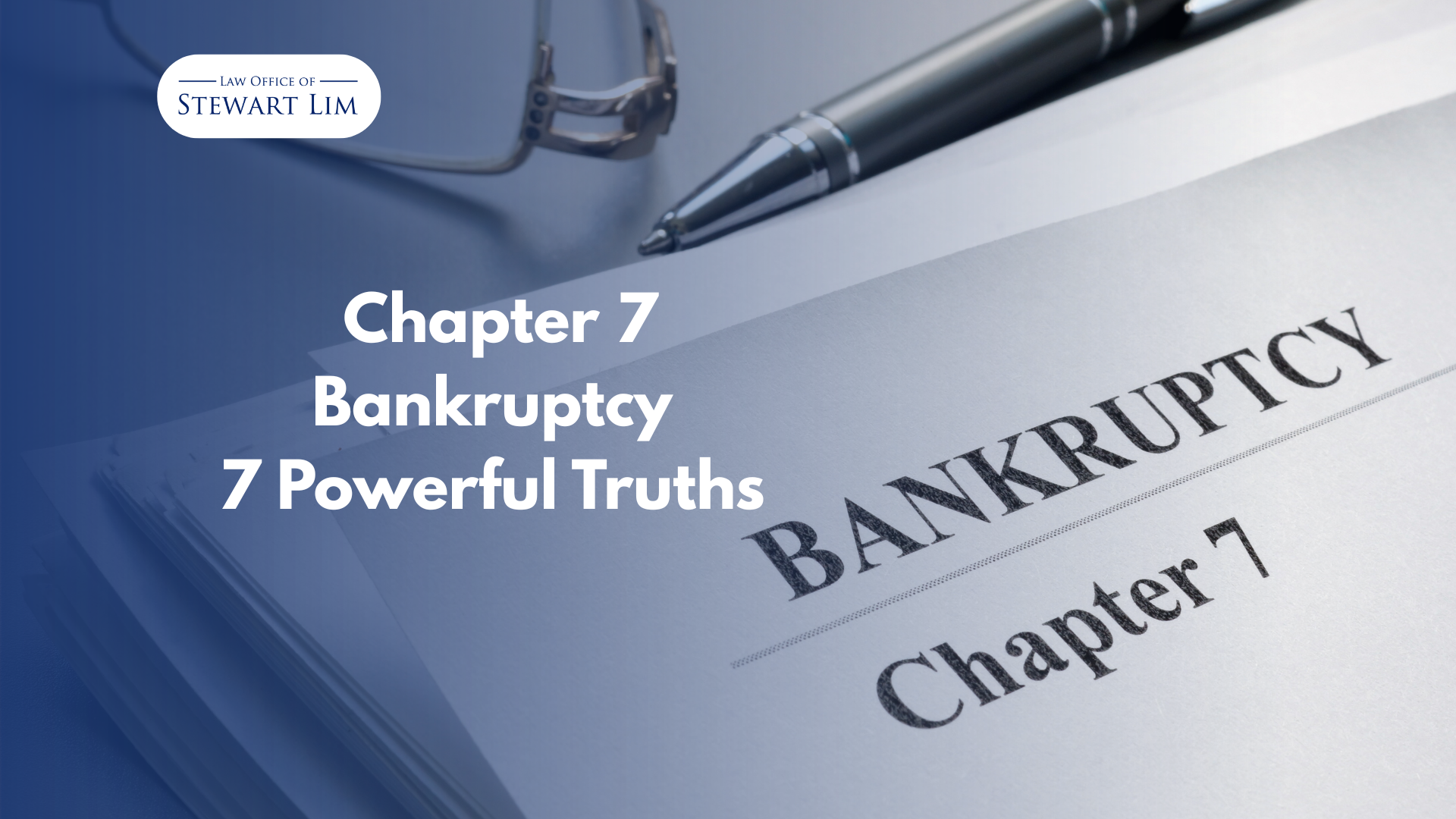If you’re overwhelmed by debt, you’re far from alone. Every year, thousands of Americans turn to Chapter 7 bankruptcy as a way to regain control of their financial future. But is it the right solution for you?
Whether you’re a single parent, a small business owner, or someone who’s faced unexpected hardship, understanding your options, including the three types of bankruptcy, can be life-changing. This guide helps you understand what Chapter 7 bankruptcy means, how the process works, and what life can look like after taking that first step toward a fresh start.
One of my friends, Jessica from Texas, told me that after her divorce, her credit card debt and medical expenses were overwhelming. Filing for Chapter 7 bankruptcy felt like admitting defeat, but it turned out to be the first step toward rebuilding her life.
Table: Quick Facts About Chapter 7 Bankruptcy
| Feature | Details |
| Type | Liquidation (most unsecured debts wiped) |
| Who Can File | Individuals, married couples, and some businesses |
| Timeline | 4-6 months (average) |
| Credit Impact | Stays on report for up to 10 years |
| Property | Some assets may be sold; many are exempt |
| Cost | $338+ filing fee; attorney fees vary |
What Is Chapter 7 Bankruptcy?
Chapter 7 bankruptcy is sometimes called “liquidation bankruptcy” because the court may order you to sell some non-essential items to pay back your debts. However, the reality is that most people can keep their homes, vehicles, and personal belongings thanks to state and federal exemptions. If your debt has become unmanageable, especially after a job loss, a medical emergency, or a divorce, Chapter 7 may offer a fresh start. Working with an experienced professional like Stewart Lim can help you understand your options, protect your assets, and navigate the process with confidence.
Understanding the Process
Filing for Chapter 7 involves several key steps, each designed to bring you closer to debt relief. It starts with mandatory credit counseling, followed by submitting your petition to the court. As soon as you file an “automatic stay,” it prevents any lawsuits, collection calls, or wage garnishments.
In addition to attending the 341 meeting, a trustee will be appointed to manage your case. If any non-exempt assets exist, they may be liquidated. Within a few months, most unsecured debts are officially discharged.
Who Qualifies for Chapter 7?
To determine eligibility, you must pass the “means test,” which compares your income to your state’s median. If your income is too high, you may need to consider Chapter 13 instead. Those who qualify must also complete credit counseling and have not filed for Chapter 7 bankruptcy in the last eight years.
Married couples can file jointly, and certain groups like veterans and the self-employed may have additional considerations.
What Debts Are Discharged in Chapter 7 Bankruptcy?
Chapter 7 is powerful when it comes to wiping out unsecured debts. Credit card balances, medical bills, personal loans, and even unpaid utility bills can all be discharged. However, some debts stay with you, including most student loans, recent tax debts, alimony, child support, and court-imposed fines.
What Happens to Your Property?
One of the biggest fears people have is losing everything, but that’s rarely the case. You’re allowed to keep certain “exempt” property, like home equity up to a limit, retirement savings, necessary household items, and a vehicle within equity limits.
Table: Common Exemptions
| Asset Type | Federal Exemption (2024) | State Exemption (Varies) |
| Home Equity | Up to $27,900 | Varies by state |
| Car Equity | Up to $4,450 | Varies by state |
| Retirement Savings | 100% | 100% in most states |
The Role of the Bankruptcy Trustee
The bankruptcy trustee plays a neutral and essential role in your case. They review your documents, conduct the 341 meeting, and oversee the sale of any non-exempt assets. Many people expect this part to be intimidating, but trustees are professionals committed to fairness and legal compliance. Mark was afraid of losing everything when he filed. But the trustee helped him understand his rights, and in the end, he kept his car and most of his personal belongings.
Chapter 7 Bankruptcy and Your Credit
For a maximum of 10 years, your Chapter 7 filing will appear on your credit report. But this doesn’t mean your credit is ruined forever. Many filers see their credit scores start to rise within 12–24 months post-discharge. The key is rebuilding smartly and consistently.
Start by paying your bills on time, using a secured credit card responsibly, and monitoring your credit report for errors or suspicious activity.
Chapter 7 Bankruptcy Costs and Fees
While Chapter 7 is one of the more affordable bankruptcy options, there are still costs involved:
- Filing fee: $338
- Attorney fees: Typically range from $1,000 to $2,500
- Credit counseling: $50 to $100
You might be eligible for a fee waiver or payment plan through the court if you’re having financial difficulties.
Pros and Cons of Chapter 7 Bankruptcy
Let’s weigh the pros and cons:
Pros
Chapter 7 provides relief right away, often within a few months. It stops creditor harassment, lawsuits, and wage garnishments while wiping out most unsecured debts.
Cons
There’s a short-term hit to your credit, and you may lose non-exempt property. Plus, not all debts are dischargeable.
This path may be right for you if you have limited income, little property, and mainly unsecured debt.
Alternatives to Chapter 7 Bankruptcy
Chapter 7 isn’t your only option. Depending on your situation, you may benefit from:
Chapter 13 bankruptcy: A structured repayment plan over 3–5 years
- Debt settlement: Negotiate directly with creditors
- Credit counseling: Work with a nonprofit agency to create a debt management plan
Life After Chapter 7 Bankruptcy: A Real Fresh Start

After your discharge, you’ll no longer be legally responsible for repaying discharged debts, and that’s a huge relief. It’s also your chance to rebuild. Create a budget, start an emergency fund, and use credit sparingly and wisely.
After her discharge, Maria began by paying her bills on time and saving what she could. Two years later, her credit score was strong enough to get a car loan at a reasonable rate.
Common Myths and Misconceptions About Chapter 7 Bankruptcy
Myth: You’ll lose everything.
Fact: Most people keep their essentials.
Myth: Bankruptcy ruins your credit forever.
Fact: Many people rebuild in a few years.
Myth: Only irresponsible people file.
Fact: Most filers are dealing with medical debt, divorce, or job loss, not poor money management.
Resources and Where to Get Help
If you’re considering filing, don’t go it alone. Free and low-cost help is available:
- Legal aid organizations
- Nonprofit credit counseling agencies
- Government info:
Frequently Asked Questions
Q: What distinguishes Chapter 13 from Chapter 7?
A: Chapter 7 wipes debts clean fast; Chapter 13 involves repayment.
Q: Will I lose my home or car?
A: The exemption laws in your state and your level of equity will determine this.
Q: Can I file more than once?
A: You can file for Chapter 7 every 8 years.
Q: Will all my debts be erased?
A: Typically, no child support, college loans, or some tax obligations are left.
Q: Do I need a lawyer?
A: Not legally required, but highly recommended to avoid costly mistakes.
You’re Not Alone: Take That First Step
Financial hardship doesn’t define your future. Thousands have walked this path and found hope on the other side. If you’re ready to talk, visit StewartLim.com today. Your journey to a debt-free life could begin right now with just one click.


